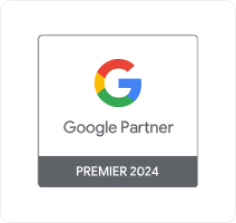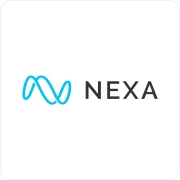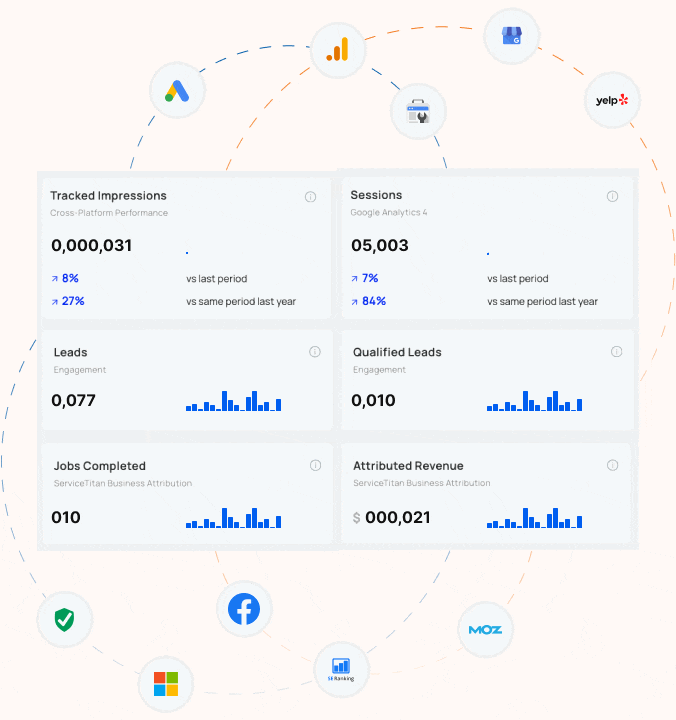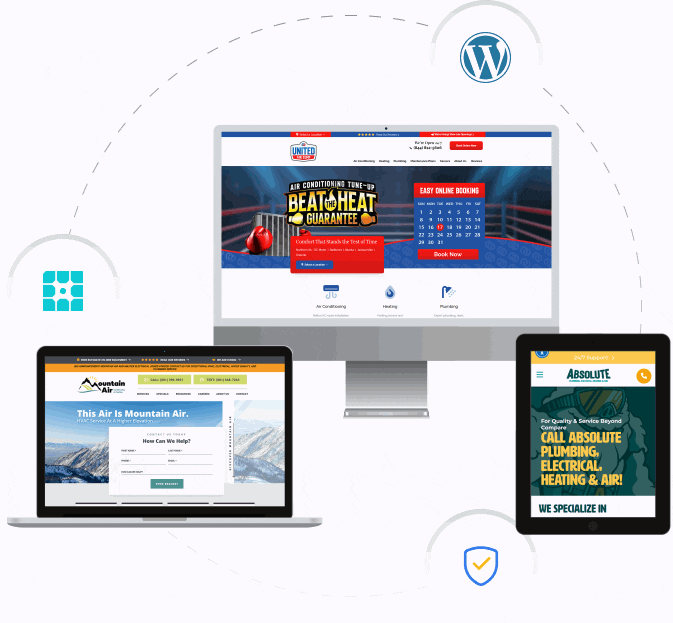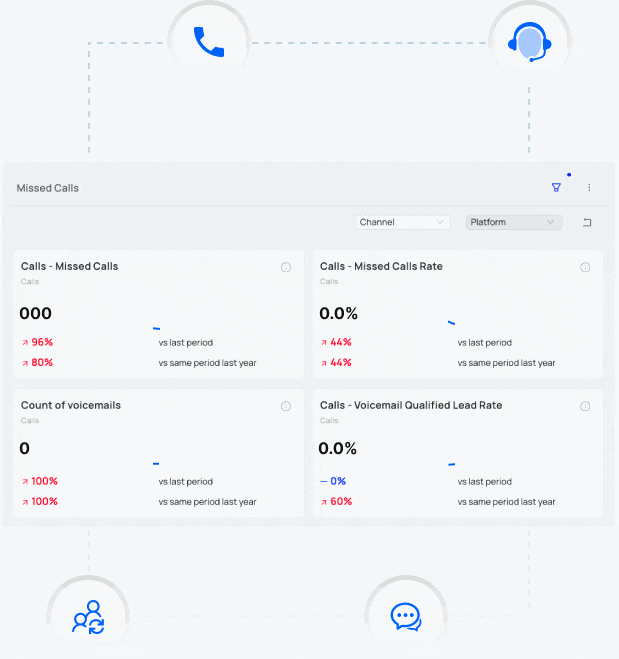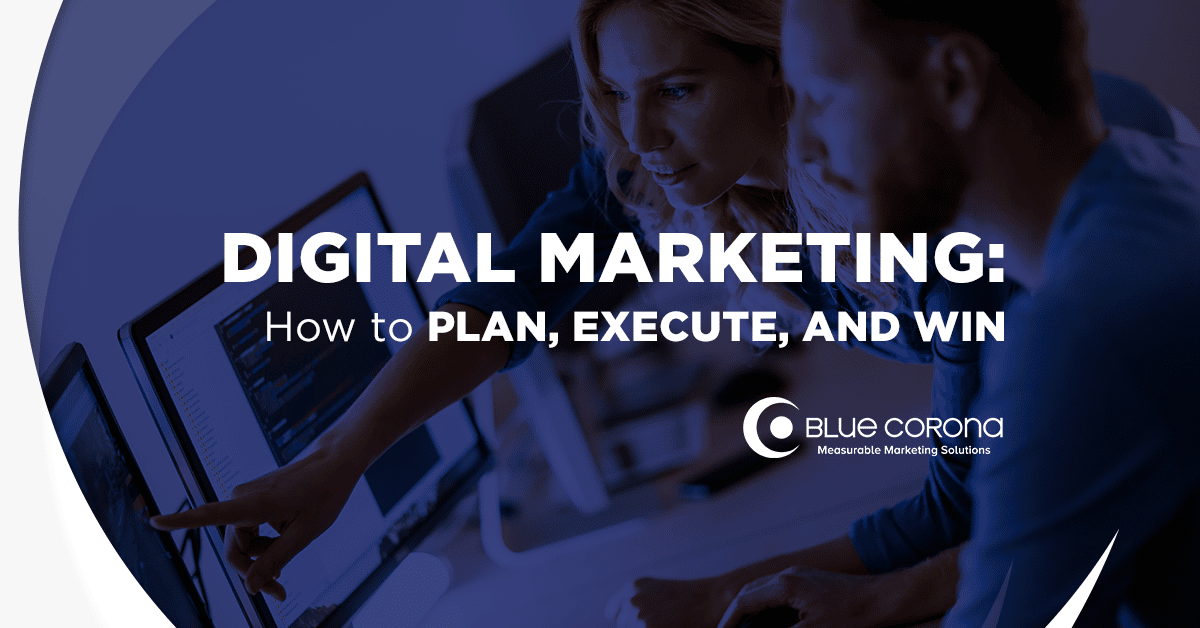
As a business owner, you’ve probably already identified your company’s marketing goals for 2020. And, like most business owners, you’re probably optimistic about keeping—and meeting—those goals.
But, let’s be honest—it’s hard for most business owners to stick to the plan they made because, well, life happens. Your operations manager takes maternity leave. Your top salesman gets poached by another company. A burst pipe causes your office to close for a week.
I’ll let you in on a secret—there is a playbook that will make your digital strategy execution run like a well-oiled machine. Our clients who have successfully executed their goals used this playbook to help them stay on-track and focus. So, what is this playbook? How can you implement the right habits to see your goals through? What are the top digital marketing trends in 2020? Allow me to fill you in.
Let's Grow Together
ENTER YOUR EMAIL TO GET STARTED
Email Subscribe – Global

How to Create a Digital Marketing Strategy for 2020: A Tried-And-True Playbook
Here’s the thing about playbooks: they’re tailored to the team and the team’s competition. Your 2020 digital marketing strategy and digital marketing plan should be no different.
To create your 2020 digital marketing plan, you need to start with a competitive analysis. That’s what we do every year, and that’s what the most successful companies do as well.
Why? Well, let me put it this way: Have you ever gone to a party to find that you were embarrassingly under-dressed? I’ll bet at that moment you wished you had found out what others were wearing beforehand so you knew what the baseline was.
The same principle goes in the digital world. If you don’t establish a baseline of where your company stands vs. your competitors, you’ll have no idea of the areas you need to focus on in order to beat them.

What you see above is a snapshot example of a digital competitive analysis, which is the best way to establish a baseline and get a good handle on where you stand compared to competitors. It dissects every aspect of both you and your top competitors’ digital presence and spits out an easy-to-understand summary of the playbook you need to adopt and execute.
After your digital competitive analysis, you can pinpoint exactly where your company needs to improve and create your strategy from there.
Learn more about digital competitive analysis here.
The Importance of Properly Executing Your Digital Marketing Plan
Once you’ve established the baseline of where your company stands and drilled down your top strategies, it’s time to get to work executing your plan. It doesn’t matter how great your strategy is—if you aren’t able to put your plan into action, there’s no way you’ll see the results you were hoping for. In fact, strategy implementation can be one of the biggest challenges a small business faces. The way I see it, the heart of your strategy isn’t the plan itself—it’s the execution.
Humor me and consider these statistics for a moment:
- The average U.S. consumer is exposed to 10,000 brand messages a day
- 92% of consumers look at a company’s website when choosing a service provider or product
- At any given time, 84% of Americans are shopping for something
- 97% of people go online to find products and services
- 93% of online experiences begin with a search engine
- 88% of consumers trust online reviews as much as they trust personal recommendations
- 86% of people look up the location of a business on Google Maps
This is your reality in 2020.
If you put all those statistics in a blender and distilled them into an action plan, you’ll get five digital marketing strategies that need to be executed perfectly in order to see results:
- Your website needs to be findable online
- Your website needs to be fast, secure, and mobile-friendly
- You need to have volumes of great website content
- You need to establish trust with reviews and testimonials
- You need to stay in touch with customers
1. Your Business Needs to be Findable online
Let’s start at the beginning: you need to be easily found online, which means you need a website. But, you can’t just toss up any old website and call it good—people need to be able to find it. After all, how can a potential customer call you if they can’t even find you?

The first place in which you need to be findable is where these potential customers typically look for businesses: Google. After all, 97% of consumers go online to find and research local products and services, and 93% of online experiences begin with a search engine. If that’s not reason enough, people use search engines to find an answer—and your services just might be the answer if you pop up.
Not sure how to determine whether or not you’re “findable?” Try this trick: plug your top keywords and service areas into Google. If you notice you’re not on the first page for any of them, don’t worry–that just means you should prioritize search engine optimization (SEO) and pay per click ads (PPC).
Learn about Google’s ranking factors here, and if you’re going it alone, we recommend you monitor your rankings on at least a monthly basis—if you need help doing this, drop us a line.
2. Your website should mobile-friendly, fast, and secure
When you go to a business’ website, you want to be able to easily navigate the site, load pages quickly, and find a clear call to action in case you want to call the company for services. In other words, the user experience is important—arguably one of the most important parts of your online presence. After all, if users aren’t able to easily use your site, they’ll move on to another company.

Here are just a few questions you can ask yourself when determining whether your site is user-friendly:
- Is your site mobile friendly? 2015 was the year of Mobilegeddon, but it didn’t stop there. Now that 80% of internet users own a smartphone, consumers are using mobile phones for what used to be restricted to desktops and laptop PCs. Mobile traffic surpassed desktop traffic in late 2016, and now more than 52% of all online website traffic comes from mobile devices.
- What is your site speed? Did you know that with every second it takes for your website to load, you lose revenue? It’s true. After three seconds, 53% of mobile consumers will click the “back” button. Take a look at how speeding up your website can impact your bottom line: Below is an example of a website that has an average of a 5-second load time. Look what happens when we increase site speed to three seconds:

And then to 1.5 seconds:
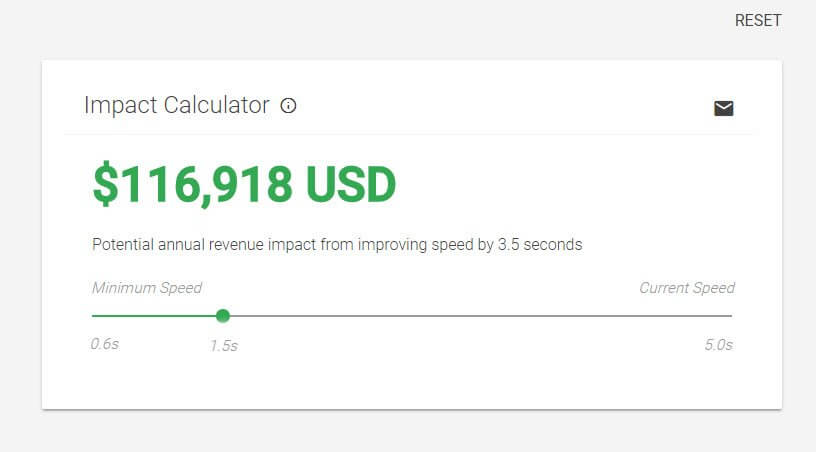
That’s more than $100k this company is throwing out your window! Learn more about how fast your website should be here.
- Is your website secure? The best digital marketing strategies include HTTPS since 82% of people won’t browse unsecured websites. In 2017, Google began labeling secured and unsecured websites with either green or red/gray labels right there in the search bar. Would you click on a website with a bright red “unsecured” label on it? Most consumers won’t. Learn more about HTTPS here.
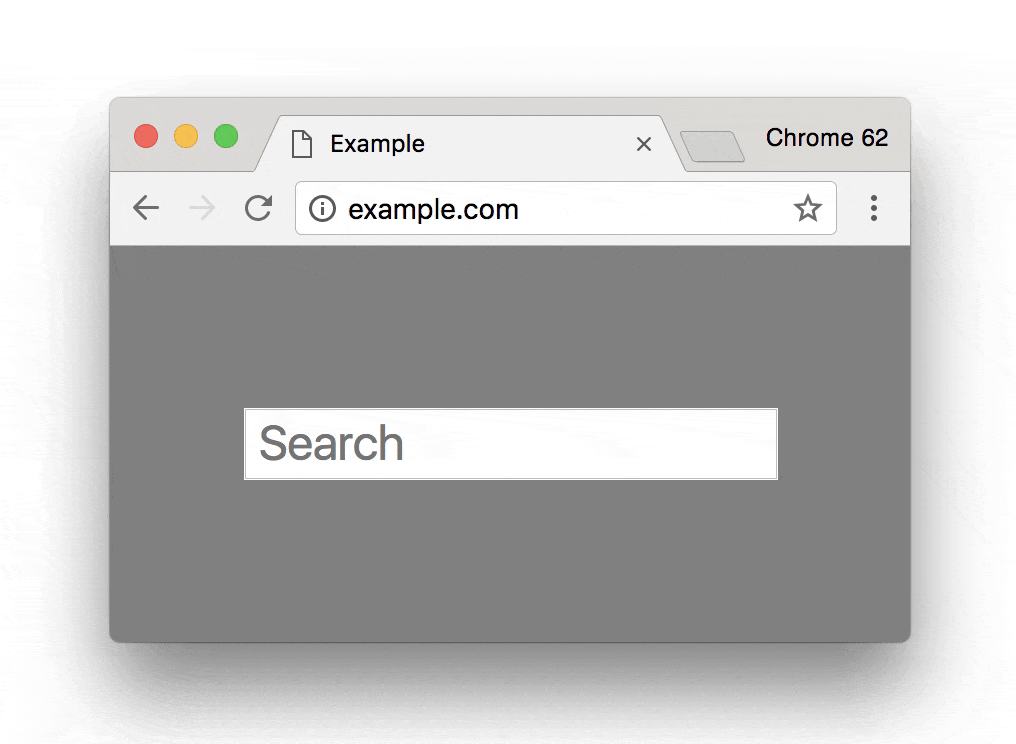
- Are the navigation and the font on your website easy to read and click through on a mobile device? If not, you’re in trouble—48% of people cited a website’s design as the number one factor in deciding the credibility of a business. Your font should be large enough to read on a mobile device, and your navigation should be large enough that it’s easy to tap on.

Once you can confidently say yes to those questions, make sure you keep up to date with Google’s recommendations for a user-friendly site.
3. Be Informative and Answer questions with volumes of website content
Once you know your site is easily findable and boasts great user experience, it’s time to ensure the information your potential customers find is helpful. Consumers are more empowered than ever before, and they like to do their research. In fact, B2B researchers do 12 searches on average prior to engaging on a specific brand’s site, and 81% of shoppers conduct research online before buying.
Does your website answer every single question they might have about your product or service?

Do you have a page for each of your services? Are you targeting the right service areas? Do you blog at least monthly? Adding a blog to your digital marketing strategy can increase your website’s chances of ranking by 434%. If you don’t do any of this, don’t worry—you’re not alone. We’ve worked with a lot of small business owners who didn’t know the importance of consistently uploading relevant, quality content.
I recommend you add pages and blogs that target your top keywords and service areas to your site a few times a month. Whether you make it a task in your calendar to blog bi-weekly or you hire a digital marketing agency to handle it for you, adding content to your site will only help your digital strategy.
4. Establish Trust with online reviews and testimonials
Now you need to establish authority by clearly communicating who your company is. Think about it—when you’re thinking about hiring a company, isn’t it comforting to see a list of their awards and certifications? Perhaps you take a moment to look at the “meet the team” page to put a face to the business. These small touches can help separate your company from the rest and ultimately create a trustworthy digital presence for your business.

Here’s a tip: Add testimonial videos on your home page, and video introductions to your employees on your meet the team page. Prominently display any sort of awards or certifications on your home page as well.
5. Provide value to Existing Customers
Drumming up new sales is difficult–by comparison, generating recurring revenue from existing customers is easy. All you have to do is prove you care. Part of caring about your customers is to provide continual value. After you’ve provided services to a customer, how can you make sure you stay in touch with them and keep them active?
Make communication with your customers a priority this year by sending an email newsletter. Whether you send it weekly, monthly, or even quarterly, your customers will simply have to check their inbox to be reminded of you—it’s that easy.
2020 Digital Marketing Trends: Examples of Themes to Capitalize On

There are five big digital marketing trends shaping 2020. While it’s not necessary to dive in head-first, if you want to dominate your local market acting now could pay dividends for years to come.
- Sky-high expectations from a brand’s customer experience
- More competitive digital space, especially search results
- High-tech capabilities become mainstream
- Expanded ecommerce capabilities and ad offerings
- Behavioral and financial changes from a recession
Sky-High Expectations from a Brand’s Customer Experience:
Each year, consumers raise the bar on what they expect from brands, and 2020 will be no different. What’s different than years past, however, is that in 2020 consumers expect MUCH more from the customer experience. A Walker study found that by the end of 2020, customer experience will overtake price and product as the key brand differentiator.

What is the customer experience? It’s the collective feeling towards a brand after consumer cycles through the entire sales funnel. To adapt, you’ll have to find the friction—any place in your entire online buying process that may cause irritability or impatience—and remove it. One good place to start is by adding a chatbot on your website.
More Competitive Digital Space:
For a while, the web was the wild, wild west and most companies could carve out a foothold pretty easily. Now, CMO predicts that by 2022, around 87% of marketing budgets will be spent on digital, making quality online real estate scarce and expensive. To adapt, you’re going to have to invest in niche advertising and marketing on platforms like Nextdoor, invest in advanced SEO practices in order to capture more “position 0” spots in the search engines, and diversify your ad portfolio to include things like Local Services Ads and YouTube ads.
High-Tech Capabilities Become Mainstream:
Technologies like AI-enabled chatbots, VR, AR, and 360-degree videos have been the mainstay for Fortune 500 companies for a few years, and the trend has now trickled down to the rest of us. Those aren’t the only once-exclusive high-tech capabilities you can use now—marketing automation now comes standard with most CRM and email marketing platforms, and the ability to send hyper-personalized messages and ads is only a few clicks away.
Another capability that was once looked at as a nice-to-have? Personalization.
Marketing used to be about mass messages. Now, it’s all about hyper-personalized campaigns. Thanks to big data and the age of assistance, you have more information about your target audience than ever before—so put it to good use. AI (artificial intelligence) and machine learning are taking much of the legwork out of creating personalized campaigns—by setting up advanced tracking and analytics, you can deliver an automated, personalized ad experience that matches where they are in the modern buyer’s journey.
Here’s an example: If both Sally and Joe are your target customers, they each see different ads and messaging that’s tailored to the web pages they’ve visited, how they’ve behaved on your website, and what their messaging preferences are.
Expanded Ecommerce Capabilities:
Ecommerce ads used to be limited to the search results, but since 84% of Americans are shopping for something at any given time, more and more platforms are offering in-app Shopping ads. In 2020, you’re going to want to look into shoppable posts on Instagram and Pinterest, and even shoppable content marketing in the form of videos and interactive features on your website.

Behavioral Changes from a Recession:
A recession is on the horizon, and consumers alter their spending habits during any economic downturn. You’re going to want to do an analysis of your target audience’s purchasing behavior when the economy goes south and alter your recession marketing plan accordingly.
Ready to Kick Off Your 2020 Digital Marketing Strategy? It’s Go Time!
And there you have it—you’ve made the strategy, and now you know how to make it happen. Of course, if this seems like a lot, give Blue Corona a call. We LOVE helping business owners both implement and execute a smart digital marketing strategy (and it’s always fun to see the exciting growth and victories that come along with it).
Fill out a contact form today and we can talk about the best digital marketing execution plan for the next year. Until then, happy 2020!
Author’s Note: This post was originally written in 2017, and has been updated each year with current digital marketing trends, statistics, and strategies.


